|
Written on behalf of Kelly lee Insurance - Home Insurance in Lake Charles LA Discover the most frequent incidents covered by home insurance for homeowners, Most of us know having a comprehensive homeowners insurance policy is essential; It safeguards you against a range of potential challenges, from fires to weather-related mishaps. Let's delve into the top five most prevalent claims covered by homeowners insurance. Sections in This Article:
Wind and Hail Damage: Homeowners often face significant risks during severe weather events. Notably, between 2014 and 2018, the most frequent claims were due to wind & hail damage, as reported by the III (Insurance Information Institute). This risk is especially conspicuous in hurricane-prone areas. While tornadoes are a concern in certain regions, thunderstorms in various parts of the country also lead to ubiquitous wind-related claims. On average, these claims amounted to $11,200. Fire and Lightning Damage: Although less common in terms of frequency, damage caused by fire and lightning constitutes the most financially impactful claims, as indicated by the III. The average claim for such incidents is a substantial $79,785. It is crucial to assess potential risks within your home and take preventive measures to mitigate fire hazards. Water Damage: Water-related issues can stem from sources like rain, snowmelt, burst pipes, or plumbing leaks. An analysis of 8-years of insurance claim data by Travelers Insurance revealed that water-related incidents accounted for 31 percent of their claims. If you reside in a flood-prone area, acquiring flood insurance is imperative to bolster your coverage against such risks. Non-Theft Property Damage: The Institute highlights property damage—such as a tree falling on your roof or accidental contact with a utility truck—as one of the leading reasons for homeowners insurance claims. Though these claims can vary, they averaged a cost of $6,598. Break-ins and Theft: Notably, theft of personal belongings and break-ins comprise six percent of Travelers Insurance claims. Interestingly, the cost of these claims does not rank within the Top-5. Enhancing your home security need not be expensive; simple measures like motion-activated outdoor lighting or adding deadbolts can significantly deter break-ins and theft. Other Notable Insurance Claims: Curious about incidents like dog bites and trampoline accidents? The III reveals that liability insurance claims, accounting for only 2-percent of total claims, encompass situations where you are responsible for injuries or property damage suffered by guests in your home. Although infrequent, these claims can be financially burdensome, averaging around $26,872. Need a quote on home insurance, flood insurance or renters insurance in Louisiana? Call or visit www.kellyleeinsurance.com TAGS & RELATED PAGES Most common home insurance claims, Kelly Lee Insurance, Home Insurance Lake Charles LA
0 Comments
In today's interconnected digital landscape, financial institutions face a myriad of complex and evolving cyber threats. The rise of sophisticated hackers and malicious actors targeting financial institutions requires a proactive approach to safeguarding sensitive data and mitigating potential financial losses. Cyber-security insurance has emerged as a crucial tool in managing the unique risks faced by financial institutions. This article explores the importance of cyber-security insurance in the financial sector and provides insights into the essential considerations and best practices for effective risk management. The Unseen Perils: Understanding the Unique Risks Faced by Financial Institutions Financial institutions have become prime targets for cyber criminals due to the vast amounts of valuable financial and personal information they possess. These institutions must contend with a range of cyber threats, including data breaches, ransomware attacks, insider threats, and social engineering scams. The potential ramifications of a successful cyber attack on a financial institution are far-reaching, impacting not only the institution itself but also its customers, partners, and the overall financial system. Exploring the Sinister Cyber Threats Specifically Targeting Financial Institutions Cyber criminals targeting financial institutions employ advanced techniques tailored to exploit vulnerabilities unique to the sector. They may seek to gain unauthorized access to customer accounts, manipulate financial transactions, or steal sensitive data for financial gain. Phishing attacks, spear-phishing, and credential stuffing are common tactics used to breach the defenses of financial institutions. It is crucial for financial organizations to stay ahead of these threats by implementing robust security measures and partnering with cyber-security insurance providers. The Domino Effect: Highlighting the Potential Ramifications of a Successful Cyber Attack on Financial Institutions The consequences of a successful cyber attack on a financial institution can be severe and wide-ranging. Beyond the immediate financial losses, such as stolen funds or regulatory penalties, the institution's reputation and customer trust can be irreparably damaged. The disruption of critical services can lead to operational downtime, resulting in financial instability and loss of customer confidence. Additionally, the interconnected nature of the financial system means that a single cyber attack on one institution can have a cascading effect, impacting other institutions, the economy, and even national security. The Shield of Protection: The Vital Role of Cyber-security Insurance in Financial Institutions Recognizing the growing cyber threats and their potential impact, financial institutions are turning to cyber-security insurance to provide a comprehensive shield of protection. Unlike traditional insurance policies, cyber-security insurance is specifically tailored to address the unique risks faced by financial institutions. It covers a wide range of potential losses, including financial losses from data breaches, extortion payments, legal expenses, regulatory fines, and reputational damage. Moreover, cyber-security insurance often provides access to incident response services, including forensic investigations, public relations support, and identity theft protection for affected customers. How Cyber-security Insurance is Customized to Meet the Distinct Needs of Financial Institutions Cyber-security insurance providers work closely with financial institutions to develop policies that align with their specific needs and risk profiles. These policies take into account the institution's size, scope of operations, types of data processed, and compliance requirements. By partnering with experienced cyber-security insurance providers, financial institutions can benefit from tailored coverage that addresses their unique vulnerabilities and helps minimize the potential financial and reputational impact of cyber attacks. Navigating the Danger Zones: Essential Considerations for Financial Institutions Financial institutions must conduct a thorough risk assessment to identify vulnerabilities and potential entry points for cyber attacks. This involves analyzing their existing security infrastructure, evaluating their data protection measures, and assessing employee awareness and training programs. By understanding their risk landscape, financial institutions can take proactive steps to fortify their defenses and prioritize investments in critical security controls. Cyber-security insurance providers can offer valuable guidance and expertise in conducting risk assessments and identifying areas that require attention. Would you like to learn more about cyber security insurance in Louisiana? Call Kelly Lee Insurance. TAGS & RELATED PAGES Cyber-security Insurance for Financial Institutions: Managing Unique Risks, LouisianaUnderstanding your commercial car insurance policy is critical to protecting your business. We have provided an outline of the fundamentals of commercial auto insurance below. What is commercial car insurance?Commercial car insurance provides a selection of coverages for cars, vans, trucks, and other vehicles used in business. There are three fundamental parts of every commercial car insurance policy: Bodily damage insurance − includes accident and comprehensive coverage Liability insurance − includes property damage, bodily injury, uninsured/underinsured motorist coverage Other coverage − includes towing and labor, medical payments, rental vehicle reimbursement, and car, truck, van, or other vehicle loans/lease gap coverage. What does commercial car insurance cover?Collision insurance Collision covers damage to your vehicle if your vehicle hits another vehicle, your vehicle incurs damage accidents not involving another vehicle, or you are hit by another vehicle, regardless of fault. Collision insurance is generally required by a loan or finance company, but maybe optional if your commercial, car, truck, or van is paid in full. Comprehensive insurance Comprehensive car insurance compensates you for damage to your car, truck, or van for issues other than a car accident. Issues such as flood damage, fire damage, earthquake damage, vandalism, theft, or damage from collision with an animal. Liability insurance Liability insurance pays for bodily injury to others involved in the accident, and property damage to the other vehicle when you are at fault for the accident. Bodily injury compensates others for their medical costs, lost wages, and potential legal expenses if a claim is brought against you because of the accident. Uninsured motorist coverage Especially in Louisiana, underinsured motorist coverage compensates you for your injuries and property damage if you are involved in an car wreck with an individual that does not have insurance. Underinsured motorist coverage Underinsured motorist protects you when the at-fault driver’s insurance policy limits are insufficient to cover your losses, both medical expenses, and property damage. Options & add-ons In addition to the fundamental components of commercial car insurance, you can modify your business car insurance policy with the following endorsement: Roadside Assistance Roadside assistance provides coverage when a problem occurs that is not naturally covered by your commercial car insurance policy. Situations such as - locking your keys in your car, the car will not start, and the occasional flat tires. Replacement cost coverage for new vehicles. New vehicle replacement cost coverage compensates you when your new vehicle is deemed a total loss. Also called gap insurance, replacement cost coverage can protect you in the event you owe more on your vehicle than your vehicle’s actual cash value. Hired vehicle physical damage with loss of use coverage Hired vehicle coverage provides comprehensive and collision coverage for damage incurred on a leased or rented vehicle, in addition to other pledged commitments to the leasing or rental company. Car loan or lease coverage Car loan or lease coverage compensates the lender for the difference between the outstanding balance on your car lease or loan and the actual cash value (ACV) of the car if your accident results in a total loss. Expanded towing Expanded towing coverage is an endorsement beyond a standard business car insurance policy. It provides coverage for minor roadside repairs, towing, and jump-starts in the case of a faulty battery. Rental reimbursement Rental reimbursement compensates you for a rental vehicle after an accident. The length and amount per day are determined before you sign your commercial car insurance policy. Options may be available, be sure to understand your daily amount and the length of time your provider will cover a rental when signing your insurance policy. Personal injury protection, medical payments coverage Personal injury protection coverage pays for the medical expenses of you and your passengers if you or your passenger's health insurance does not cover the costs. If you still have questions regarding commercial car insurance in Lake Charles La, call to speak with a knowledgeable insurance agent 337-656-2890. TAGS: What is covered under a commercial auto policy - commercial auto insurance Lake Charles LouisianaCar Insurance, Truck Insurance, Van Insurance Lake Charles LaWhen you are shopping for insurance in Lake Charles Louisiana vocabulary is essential to understanding who you are purchasing insurance from. This article aims to define one of the most common terms in the insurance sphere, “insurance carrier.” We explain the difference between an insurance carrier and an insurance provider. An insurance carrier An insurance carrier is a company that sells insurance. The term insurance carrier is often confused with an insurance company, insurance provider, insurance agency, or insurance brokerage. However, insurance carriers sell the policies, such as homeowners, business, life, and car insurance, directly to policyholders. Two of the more well-known insurance carriers companies are Nationwide and Progressive Insurance. How an insurance carrier differs from an insurance agent Insurance agents are usually employees of the carrier that sell policies on the insurance carrier’s behalf. Most policyholders work through an insurance agent to manage their policy (file claims and make changes to their policies). However, the carrier is the one that insures your possessions, collects your premium, and pays you for a covered loss. How insurance carriers work Most carriers sell their products online or through an agent in today's marketplace. Simply visit their web address, click on a product-specific quote form (example, auto quote, homeowners quote, etc), fill out the requested information, choose your coverage and deductible, and bind your policy with a payment. Another option is to work with a Lake Charles insurance agent employed by the carrier. Most carriers have a local office with insurance agents on-premise. If you choose to meet with a Lake Charles insurance agent, you will have the opportunity to ask product-specific questions, discuss options and endorsements, and discover if you qualify for additional discounts. Working with an insurance agent affords you the ability to provide personal details that can help the agent tailor your insurance to your specific needs. Agents can also bind and print your policy while you are in the office. Please note that online quote forms and in-person quotes do not bind your insurance, you need to make a payment before exiting the website or leaving the insurance agent's office to secure coverage. Should you need to file a claim, your agent will pair you with an insurance carrier’s underwriter. An underwrite works for the carrier and is the one responsible for determining the value of your loss. The underwriter then submits his findings to the insurance carrier for payment. The payment comes from the insurance carrier, not the underwriter or insurance agent. Insurance carrier vs. insurance provider The terms insurance carrier and insurance provider are interchangeable. Both terms are used when describing the company that is responsible for paying for a covered loss. Both identify the entity that sells insurance products to the public, either directly or through an agent. Key takeaways:
If you are researching car insurance in Lake Charles Louisiana or homeowners insurance in Lake Charles, La, and would like to shop for the best insurance rates, consider calling an independent insurance broker. Independent insurance brokers usually write insurance policies for more than one insurance carrier. By offering more than one carrier, the brokerage is able to shop multiple policies to help their clients find the coverage they need at the best price, often saving you money on your policy. When you work with a single insurance carrier, they offer one rate. And while shopping with an independent agent may not yield the cheapest car insurance in Lake Charles La, you can be sure that they have vetted the companies they work with to ensure their clients will be taken care of should an incident or accident happen. TAGS: Insurance Carrier vs Insurance Agency, Insurance Lake Charles, Lake Charles InsuranceCar Insurance in Lake Charles, LA - Car insurance laws vary from state to state, but every state requires some form of car insurance (or proof of financial responsibility) to drive legally. While it can seem like just another way to take your money, car insurance is actually designed to protect you and those traveling with you as much as other drivers if you are involved in an accident. Overall, Louisiana car insurance laws require a minimum level of auto coverages listed below. For additional information about car insurance in Louisiana, you can visit our state's department of insurance website. Bodily injury liability Liability Insurance is intended to cover injuries that you, a designated driver, or the policyholder, inflict on another. For example, if your policy lists additional drivers in your family, your policy will also cover their liability should they be involved in an accident. Medical payments or (PIP) personal injury protection Louisiana car insurance laws require medical coverage. PIP reimburses for the treatment of injuries to those in the policyholder's vehicle. Medical payments coverage will cover medical payments, lost incomes, and other expenses that resulted from the accident. Property damage liability Property damage liability compensates for damage you (or a driver with your permission) cause to another driver's property. In additional to car damage, property damage liability can include damage you cause to fixed objects, such as, fences, a home or building, or other structures your car strikes. Collision coverage Collision coverage safeguards you in the event your auto is damaged in a wreck with a vehicle, objects in the road, or if your auto flips over. In addition, collision insurance can cover damage incurred by potholes or damaged roadways. Comprehensive coverage Comprehensive coverage compensates you for a loss due to robbery, falling objects, fire, floods, earthquakes, windstorms, hail, vandalism, or imapct with animals. Louisiana, like most states, doesn't require comprehensive insurance coverage. However, if you financed your car, your lender will require you to carry comprehensive insurance until your loan is satisfied. Uninsured and underinsured motorist coverage UI uninsured motorist coverage is designed to compensate you for damages you incur if an uninsured driver hits you, or you are involved in a hit and run. Underinsured motorist helps you when an at-fault driver doesn't carry enough insurance to cover your losses from an accident. Underinsured coverage can also safeguard you if you are hit by a vehicle as a pedestrian. Not sure you are meeting state requirements with your insurance in Louisiana? Call Kelly Lee Insurance to speak with one of our knowledgeable insurance agents; we will ensure you have the coverage that best meets your needs. Kelly Lee Insurance works with over 50 insurance underwriters to provide car insurance in Lake Charles, Louisiana. We may not be the cheapest car insurance in Lake Charles, Louisiana, but we will ensure your assets are covered. TAGS: Louisiana Car Insurance - What You Need to Know, car insurance Lake Charles La, truck insurance Lake Charles La, motorcycle insurance Lake Charles LAWith many teenagers head off to college, parents often have concerns over their car insurance in Lake Charles Louisiana. We attempt to answer several common questions about your car insurance in Lake Charles Louisiana and your out of state college student below. Question 1. Will your college student be covered when they attend an out-of state-college? Answer: Unless your child is planning a permanent move to the other state, most insurers will not require you to make a change, but it is a good idea to check with your agent just in case changes in policy coverage are needed. Question 2. Is there a way to shop insurance without contacting multiple companies? Answer: Try looking for a local company that writes for multiple companies. By doing this, you can give your information to one agent and allow them to shop their multiple carriers. Question 3. If you let another person drive your car and they are involved in an accident, will your car insurance in Lake Charles Louisiana cover the accident? Answer: Most insurers will cover an accident as long as the person had your permission to drive the car and has a valid driver’s license. There are exceptions to accident coverage, always check with your agent if you are concerned. A couple of notable exceptions are the living arrangement - whether the person you loan the car to uses it regularly, and your choice in car insurance coverage. Louisiana law requires liability coverage on all cars driven. Liability covers property damage or personal injury that you can be held liable for, up to your chosen policy’s limits. Louisiana state law requires vehicles to have a minimum of 15/30/25 liability limits. Those numbers represent coverage of $15,000 payment for bodily injury per person, with a $30,000 maximum for bodily injury per accident, and $25,000 of coverage for damage to the other vehicle or property. What Liability insurance covers. Liability insurance protects bodily injury or property damage caused by the driver of your car, whether it is you, a family member, or friend driving your car/truck/motorcycle with your permission. You and those listed on your policy may also be covered when driving another person’s car/truck/motorcycle including rental or personal passenger vehicles. If you drive a non-owned car or company car regularly, your personal car insurance will not cover an accident or incident. Medical payments coverage reimburses for medical expenses derived from an accident up to a designated period, up to your chosen policy’s limits. Medical payments coverage can include, God forbid, funeral expenses. These medical payments are made irrespective of who is responsible for the accident. Medical payments cover you, family members, and passengers in your car at the time of the accident. Something to consider whether sending your child off to college or not, is adding Uninsured/Underinsured Motorist coverage. UIUM pays benefits to if your car/truck/motorcycle is hit by a driver who with no insurance or has too little insurance to cover the cost of your injuries or property damage from the accident. Do you still have question about your car insurance in Lake Charles Louisiana? Call Kelly Lee Insurance and allow one of our knowledgeable agents to answer your questions TAGS: Car Insurance in Lake Charles Louisiana and Out of State College Students, car insurance lake charles la, truck insurance lake charles la, motorcycle insurance lake charles laWhether you are insuring your first vehicle or you simply have not shopped your car insurance in Lake Charles, La. a while, the goal is the same: You want to be sufficiently covered if you are involved in an accident, without paying more than you need to. Unfortunately, individuals do overpay because they lack the time to shop for their car insurance. However, shopping your auto insurance can save most individuals could save hundreds of dollars a year.
Kelly Lee Insurance in Lake Charles, Louisiana, represents over 50 insurance carriers; allow us to do the shopping for you. Step 1: How Much Insurance Coverage do You Need? To find the best auto insurance policy, start by figuring out how much insurance coverage you will need. In Louisiana, every vehicle is required to have minimum liability limits of 15/30/25. The payments, or numbers, break down as follows: $15,000 for bodily injury to one person, $30,000 for bodily injury to more than one person per accident, and $25,000 liability coverage for damage to the other vehicle if you were at fault. Determining How Much Car Insurance Do You Need Knowing Louisiana State Minimum Insurance requirements will help decide the amount of coverage you need. This decision is based on the level of personal risk you are willing to assume. Industry authorities recommend obtaining enough liability coverage to protect your personal assets in the event of an accident. If you obtain an insurance policy with $50,000 of bodily injury liability coverage and your personal assets are worth $100,000, in an at-fault accident (you caused the accident) that exceeds your $50,000 insurance coverage, the injured party can be awarded money from your personal assets (personal assets can include your savings, retirement and even your home). The type of vehicle you drive carries weight on your insurance needs and requirements. If you currently drive an older model vehicle and do not own assets, your requirements will be less than if you purchased a top-of-the-line new vehicle, own a home, and have a large savings or retirement account. Your vehicle's insurance coverage should reflect how much you stand to lose if you cause an accident. Step 2: Review Your Current Insurance Policy As dull as it is, read your current policy thoroughly or contact your insurance agent in Lake Charles, Louisiana, to obtain the information you need. Take notes on the amount of coverage you currently carry and the amount you are paying for it. Examine the monthly and yearly cost of insurance; most insurance companies quote policies both ways to compare policies. Step 3: Know Your Driving Record Most individuals know if they have had any tickets or accidents in the last three years; if you can't remember, check with the Louisiana department of motor vehicles. If a ticket is about to roll off your driving record, consider waiting to shop insurance or purchase a vehicle until it does. Your improved driving record will help you find the best auto insurance rates. Step 4: Research Competitive Quotes Now you are ready to shop your car insurance in Lake Charles, La. Schedule time to speak with several agents or find an office that writes for many carriers. You should have a copy of your current insurance policy in hand, your driver's license, and your current vehicle registration. Keep in mind, not all insurance companies over multiple insurance carriers. You can save valuable time by working with an agency that writes for and can shop multiple carriers by giving your pertinent information to one agent. Step 5: Gather Company Information Once you have your competitive quotes, carefully review the coverage and rates to ensure the coverage limits are the same and inquire about the insurance companies' payment policies (when payment is due, paid in full discounts, what happens if your payment is late). Step 6: Ask for Discounts When you shop for insurance, ask if the various companies offer discounts. For example, many insurance carriers offer good drivers, good students, vehicle safety ratings, security equipment, multi-policy, and other occupational or professional affiliation discounts. Step 6: Ask for Discounts When you shop for insurance, ask if the various companies offer discounts. For example, many insurance carriers offer good drivers, good students, vehicle safety ratings, security equipment, multi-policy, and other occupational or professional affiliation discounts. Step 7: Assess the Companies Now you should have the insurance policy price and coverage information you need to decide. You can look at which company offers the best insurance coverage at the best price, but price should not be the only basis for choosing an insurer. A company's financial stability should be considered. A history of taking care of their clients should be evaluated as well. You can find how an insurance company treats its clients by visiting the National Association of Insurance Commissioners' Consumer Information Source to assess a company's performance. The NAIC provides licensing information and critical financial data about insurance carriers. You also can visit the Louisiana State Insurance Commissioners website to view consumer complaints and rate comparisons auto and homeowners insurance. Step 8: Cancel Your Previous Policy Once you have selected the new auto insurance policy you want and have your proof of insurance, you need to cancel the policy with your existing insurance company. TAGS: Tasks to Tackle before shopping insurance in Lake Charles, Louisiana, auto insurance, car insurance, truck insurance, motorcycle insurance LouisianaHow much does homeowners insurance cost is a popular question. For most people, their home is their largest asset, and protecting that asset can be pricey. Homeowner's insurance can vary widely based on many rating factors, such as condition, location, size, features, furnishings, and your marital status and credit score. The answer to the question of "how much does a homeowners insurance policy cost" is based on many factors, a few of which are listed below. The short answer - it depends. As technology progressed so did the rating factors. Software systems are getting more sophisticated, and historical data has allowed policy underwriters to more accurately calculate rates based value, location, and condition of the home, along with the extent of coverage, deductible, and the homeowner's credit and claims history. Understanding How to Choose Coverage and How Much You Need Home Insurance has three fundamental types of coverage that determine the amount of compensation you receive following a covered disaster. Actual cash value (ACV) - Protects your structure and contents based on their current value, not to be confused with what you paid for them. Replacement cost (RC) - Protects the structure and contents based on what they cost now up to the policy's value. Guaranteed or extended replacement cost/value (GRCV) - Protects the structure and contents based on the present-day cost to replace and/or rebuild your property at a designated percentage above the policy limits. The cost of the policy is also based on the dollar amount you insured the dwelling, liability coverage you agreed to, in addition to other factors. Many individuals find they are underinsured when catastrophe strikes, and is especially true of individuals that maintain enough coverage to satisfy the mortgage company. Policyholders should understand that mortgage companies are only concerned with protecting their investment; your contents and additional property are not their concern. The National Association of Insurance Commissioners' most recent data (from 2017 – 2018) reported increased premiums of 3.3% across the country. The report also revealed that homeowner's insurance premiums are higher in areas with greater population due to real estate values and construction costs. Increased insurance rates is also the case for popular vacation and retirement areas, areas prone to natural disasters such as tornadoes, wildfires, earthquakes, and hurricanes When researching homeowner's insurance in my area, it would be beneficial and save time if you have the following information handy:
The dollar amount and specific coverage are the most significant determinants of policy price; other factors come into play. Condition and age of the home (has it been reasonably maintained), materials used to build the home, and the age and condition of the roof. Underwriters also consider:
Most states allow the credit history of a homeowner to factor into rates. Proximity to a fire hydrant, police, and fire station can also positively impact your homeowner's insurance. Your neighborhood and claims history in the community, along with the crime rate in your area, can impact your rates. Additional endorsements to cover particular circumstances or personal property also impact rates. When trying to find a cost-benefit balance, ensure your liability coverage is enough to protect your personal assets, in the event an accident and the injured party sues you. If you fail to carry enough liability insurance, courts can attach an award to your personal assets. If your assets are substantial, consider adding an umbrella policy, the cost is minimal, but the liability coverage can be significant. A leading liability claim is dog bites – most homeowners insurance and liability policy coverage extends to your children and pets. Shopping insurance in Lake Charles La can save money. Considerations for Lowering Your Homeowners Insurance Rates If premiums for your homeowner's insurance are coming in too high for your budget, consider the to lower your rates. Keep in mind, higher deductibles mean more out of pocket expense if an incident or accident happens. Increasing your deductible. Increasing the amount of money you are willing to pay out-of-pocket before your coverage kicks in can lower your premiums. Increasing from $500 deductible to $1,000 deductible can decrease your premiums by as much as 25%. If you are going to increase the deductible, you should have a savings account with the $1000 set aside in the event of an incident or accident. By raising your deductible, it will also mean that you will need to absorb the costs of repairs you may have otherwise claimed. Claims such as repairing a broken window, or replacing flooring from a leaky pipe will likely cost less than or come in just above the cost of your deductible. Insurance policies may also include different deductibles for distinct perils. For example, hurricane deductibles on homes along the coast are generally a percentage of the insured value of the home, where other peril deductibles like fire is most often a fixed dollar amount. Adding security features and making certain repairs can also lower premiums. Types of additions and repairs that can lower your homeowner's insurance can include:
When renovating, consider using materials with a higher safety rating. Examples are steel framing and cement; while these items can cost more upfront, they are more cost-effective to insure due to their flame-resistant qualities. A claims-free discount may be available if you have maintained insurance through the same company for years. Additional savings may be available if you carry multiple policies with the same insurer (think of bundling your auto and homeowners with the same provider). Being prudent with your claims is another way to save money on your homeowner. Your insurance is there to protect you from financial disasters; think carefully before filing a claim that is worth very little after paying your deductible. Your claims history has an impact on your insurance rating and can cause premiums to increase at renewal. Don't treat your homeowner's insurance policy as a maintenance plan. Home insurance is for accidents or incidents that are unexpected, and you can't afford to pay for out of pocket. Claims free individuals and households benefit from being a low-maintenance customer. The rewards are reflected in lower premiums. Owning your home outright can also lower rates with some underwriters. When shopping for homeowners insurance in Lake Charles Louisiana, look for a reputable company with access to multiple insurance underwriters; this will allow you to fill out one quote form and your agent to do the shopping for you. TAGS: How much does homeowners insurance cost in Lake Charles Louisiana, insurance Lake Charles La, home insurance Lake Charles LaUnsure whether you need a personal auto or commercial auto insurance policy? Below are a few considerations when deciding which type of insurance policy best suits your needs. Who Owns and Drives the Vehicle If your business owns your auto, you most likely need a commercial vehicle insurance policy. If you are sole owner of the company, you may only need personal auto insurance. The type of insurance policy you need depends on what you use the vehicle for and how often you use it. How the Vehicle is Used If your vehicle is used for business purposes, most individuals need a commercial auto insurance policy. If, however, you are a sole owner traveling to a couple of job sites a day or only use your company car for commuting, you may only need a personal auto policy. The Type and Weight of the Vehicle If your work vehicle is heavier than a traditional pickup or SUV, such as a tow truck, dump truck, or 18-wheeler with a commercial trailer, you will probably require a commercial vehicle insurance policy. Heavy-duty vehicles typically cause more damage when involved in an accident and often require special insurance coverage. Required Business Liability Limits If your business by trade or clients require higher liability limits, you will generally need a commercial vehicle insurance policy. Commercial vehicle insurance policies generally offer higher limits than personal auto insurance policies. How do you determine if you need auto or commercial insurance? Personal auto insurance policies limits generally provide high enough auto insurance coverage for some businesses, particularly if you drive your vehicle for personal use. However, if you require specific commercial auto insurance coverages, high Liability limits (limits exceeding $300,000), operate an a unique vehicle, haul heavy or special equipment, transport people or goods, or have additional special needs, then you will want a commercial vehicle insurance policy. COMMERCIAL VEHICLE COVERAGES Liability Coverage is essential coverage that includes injuries or damage you cause to other people or property if you're at fault for an accident. LIABILITY Bodily Injury - Property Damage - Uninsured Motorist - Driver protection These four coverages can help pay for your medical expenses if you or your passenger(s) are injured while driving a commercial vehicle. Medical Payments - Personal Injury Protection - Pet Injury Coverage - Vehicle protection coverage Protects your investment against damage to your vehicles caused by collisions and a wide array of additional mishaps that can happen to your vehicle. Physical Damage - Collision - Comprehensive - Individual Named Insured Endorsement - Fire and Theft with CAC LARGE TRUCKS Large trucks share many of the same insurance coverages as other commercial vehicles, here is where's it gets more specific to trucks. Non-Trucking Liability - Trailer Interchange - Motor Truck Cargo - Motor Truck General Liability - Rental Reimbursement with Downtime - Specialty coverage Some businesses occasionally need specialized protection in addition to basic liability and truck damage coverage. Any auto - Non-Owned Car - Hired auto - Drive Other Car - Single Deductible Endorsement - Tow specific coverage are a few examples. TOW SPECIFIC TRUCKS While tow trucks share many of the same coverage as other commercial vehicles. Tow-specific coverage is geared towards tow trucks are Garage keepers Legal Liability Insurance - On-Hook Towing Insurance Still need help deciding? Call Kelly Lee Insurance and allow one of our experienced commercial vehicle insurance agents to guide you. TAGS: Commercial vs. Personal Auto Insurance Policies, commercial truck insurance Lake Charles La, large truck insurance Lake Charles LaNecessary Steps to Take After Being Injured At Work Even if you have been trained to take every precaution during work, still situations can arise where you might get injured. Accidents related to snow, rainy weather, inexperienced co-workers, equipment failure or unexpected incident while at work or on the clock can result in injury. When an accident happens at work, several steps should be taken to ensure the accident's safe and smooth management. You find a list of steps in the preferred sequence below. Report your injury Report the injury to your employer or supervisor as soon as possible. There have been cases when the employers or the injured person's insurance provider denied the claim because it was not reported. Therefore, we suggest reporting the incident within 24 hours of happening, if immediately is not possible. Letting the health care provider know that the injury is work-related When you seek medical treatment, you should inform your doctor the injury was work-related and how it happened. Additionally, the doctor should refer to the injury as work-related in your medical reports. If your medical reports do not have the reason mentioned, most workers' compensation claims will deny financial responsibility. Check Louisiana workers' compensation benefits for more details. Provide your employer with a notice of the incident Every company has a standard injury reporting policy; however, each may vary. You should contact your employer as soon as possible and inform them about the incident. Explain in detail the events surrounding the accident and take notes, including whether an official accident report is created to prove the incident for future needs. The report will act as proof that you reported the case on time. Also, please obtain a copy of the report to keep it secured. Keep track of your incurred expenses Start and keep a diary of all missed days of work, all travel to and from doctors, physical therapy, pharmacy, and additional out-of-pocket expenses, including prescriptions. You can qualify for a worker's compensation benefit, but that largely depends on the severity and the nature of the injury you incurred. In most cases, you can obtain reimbursement for your medical and prescription expenses, lost wages, the number of days you could not work, and travel expenses. Contact your workers' compensation insurance broker for help The process of claiming compensation be daunting and time-consuming. There are less reputable insurance adjusters that may use your given statements against you when you claim compensation. You will need to ensure you have someone to guide you. You will need to file an injury incident form, and a broker will be able to guide you through the paperwork. You can follow all work-related safety measures, be very careful with what you do at work, and still find yourself in precarious situations. Knowing what to do after a work-related accident is crucial to compensation. Kelly Lee Insurance can guide you through Louisiana workers compensation claims benefits with an experienced hand. Contact Kelly Lee Insurance if you need to obtain a policy or assistance with a current Louisiana workers compensation insurance policy. TAGS: Workers compensation claims steps, workers compensation Lake Charles La, Louisiana workers compensation insurance policies |
Archives
June 2023
Categories
All
|
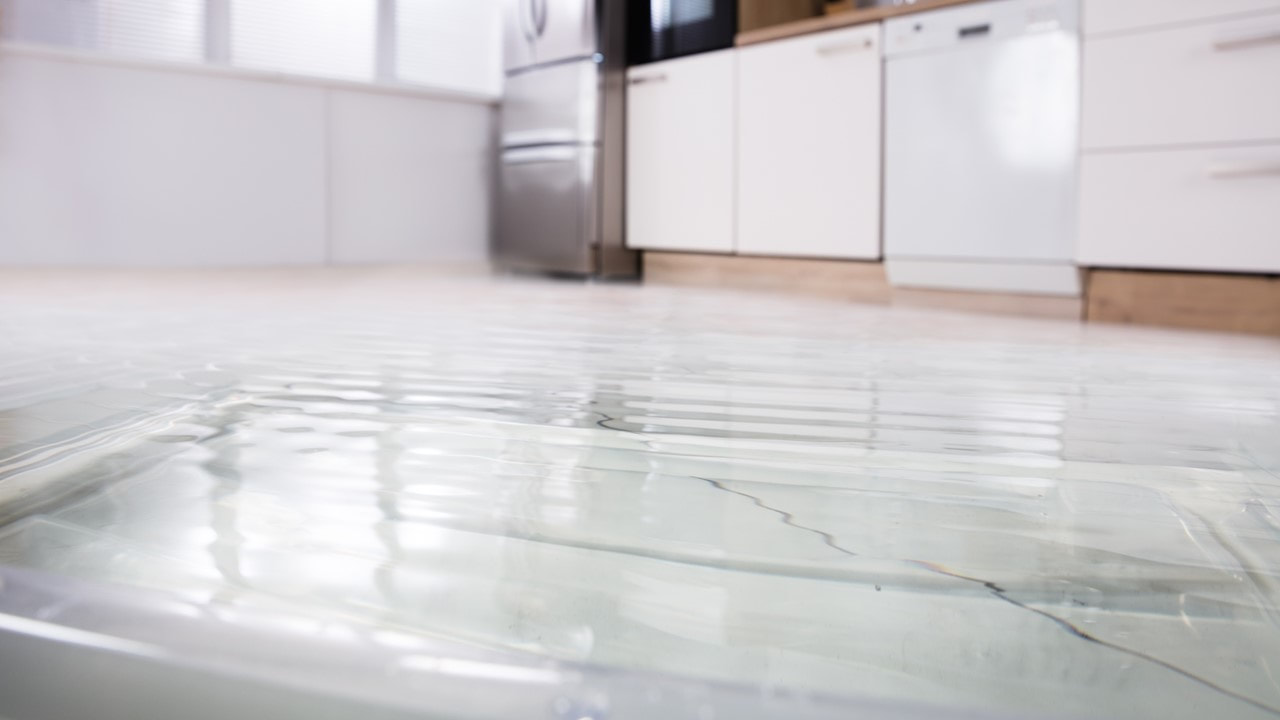

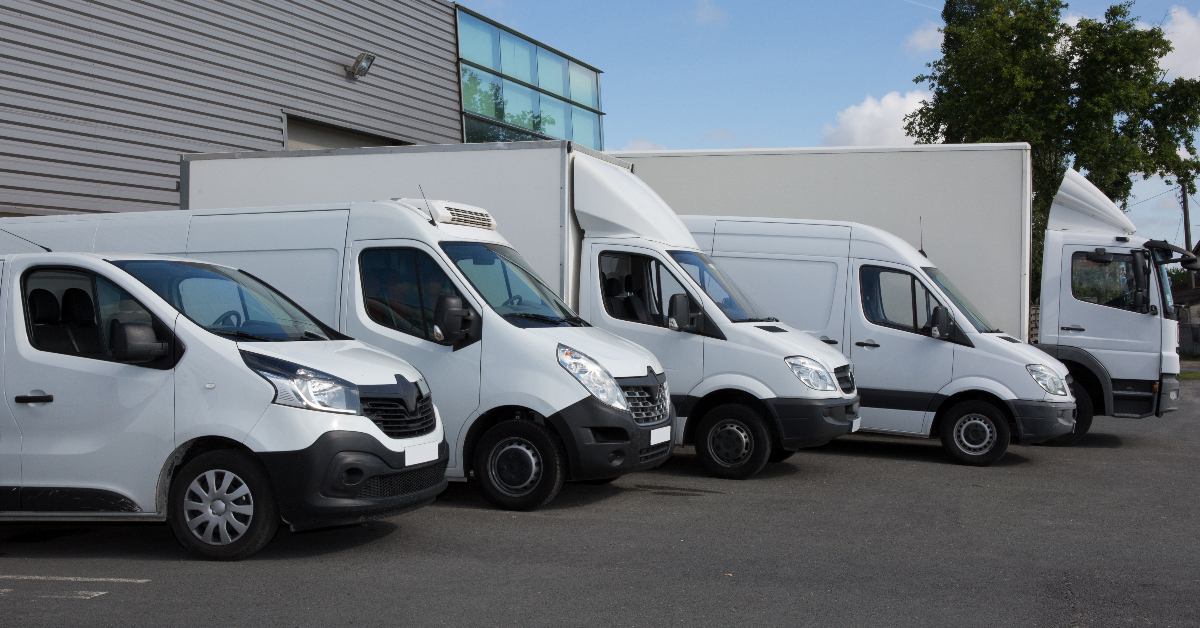
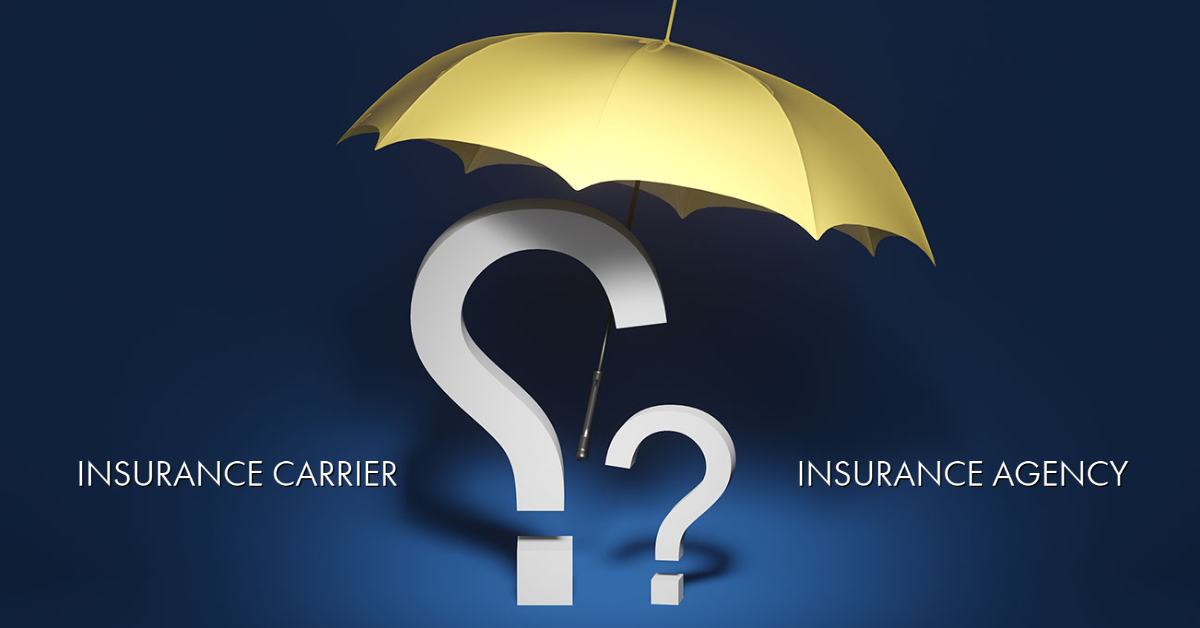
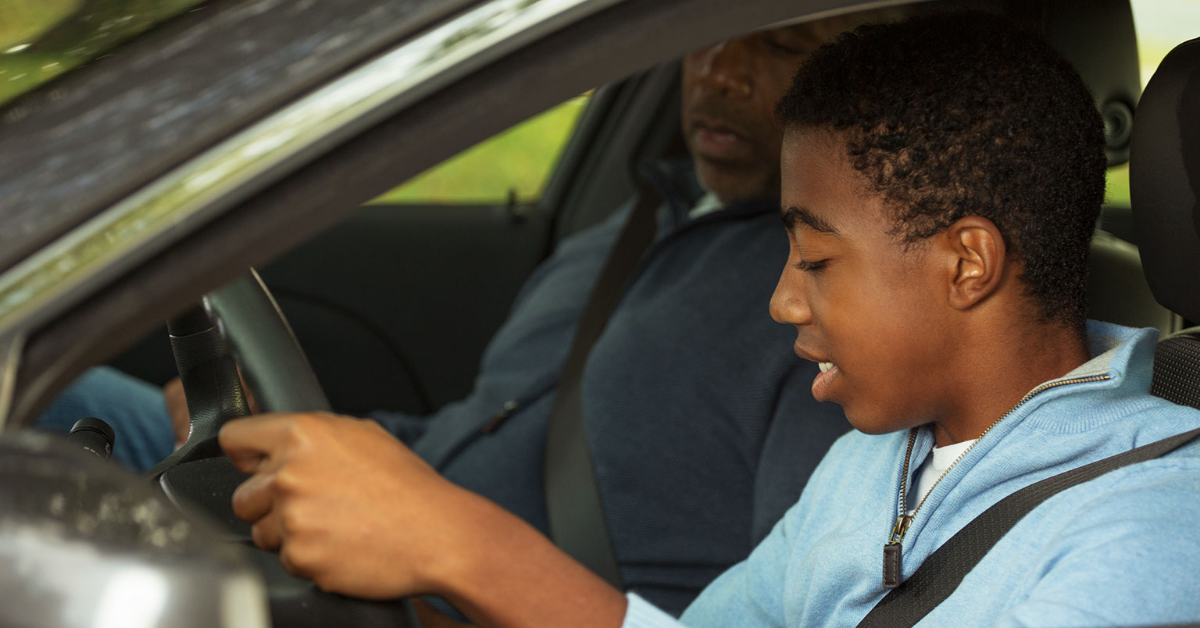
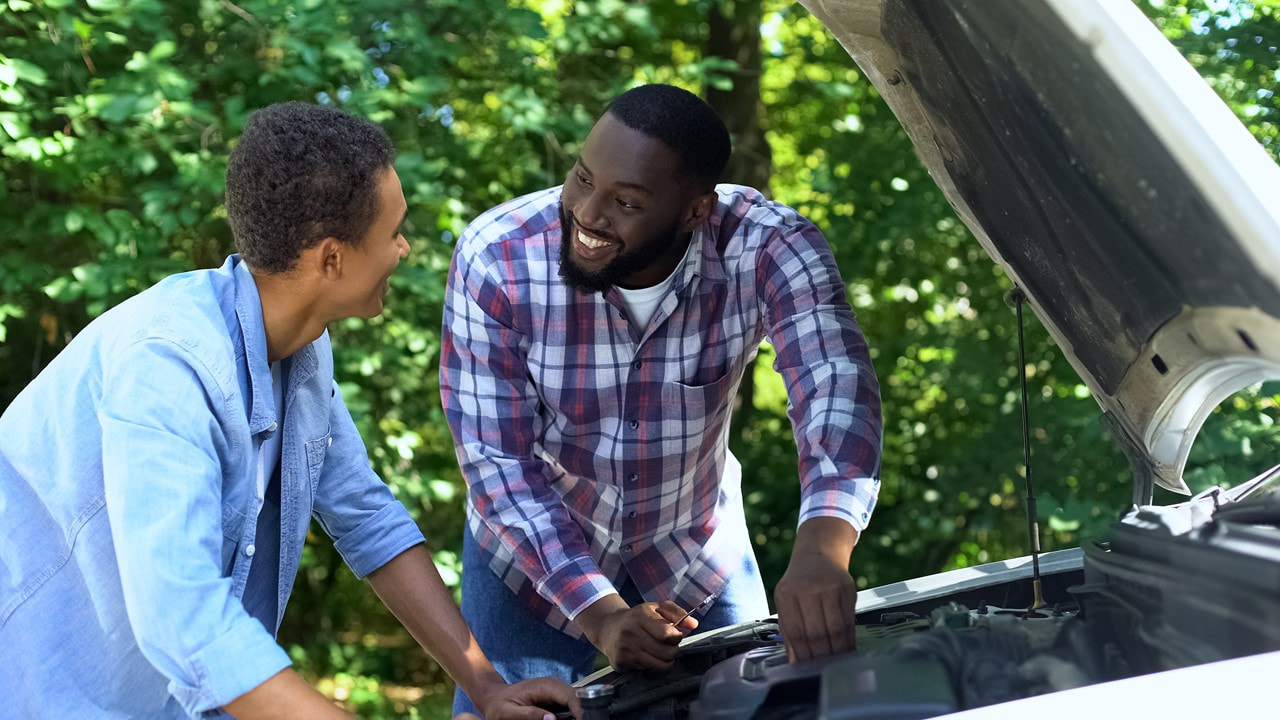

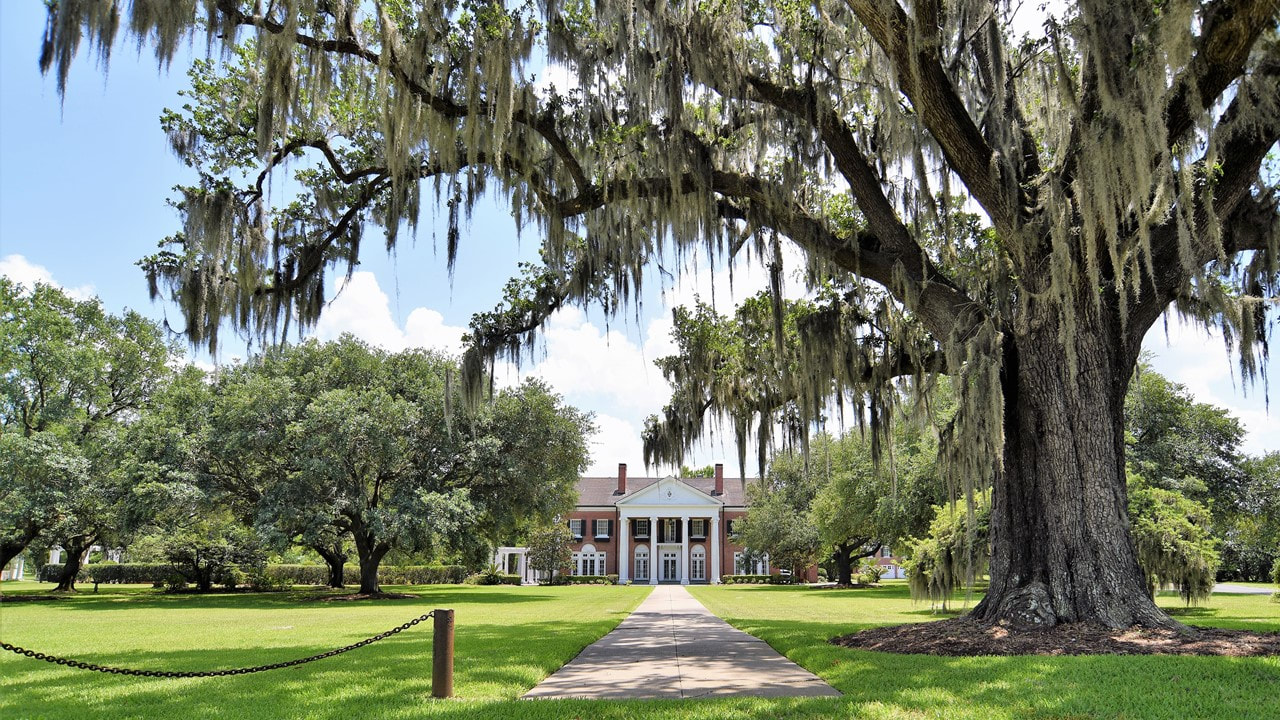
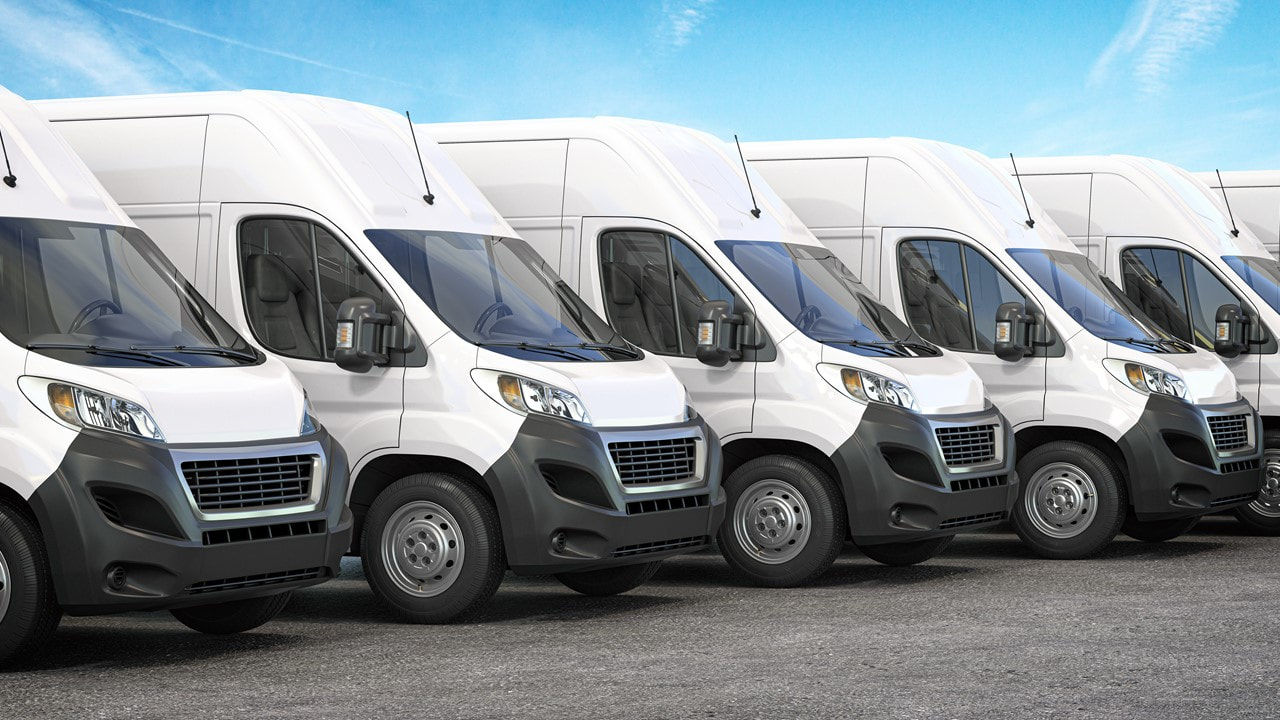
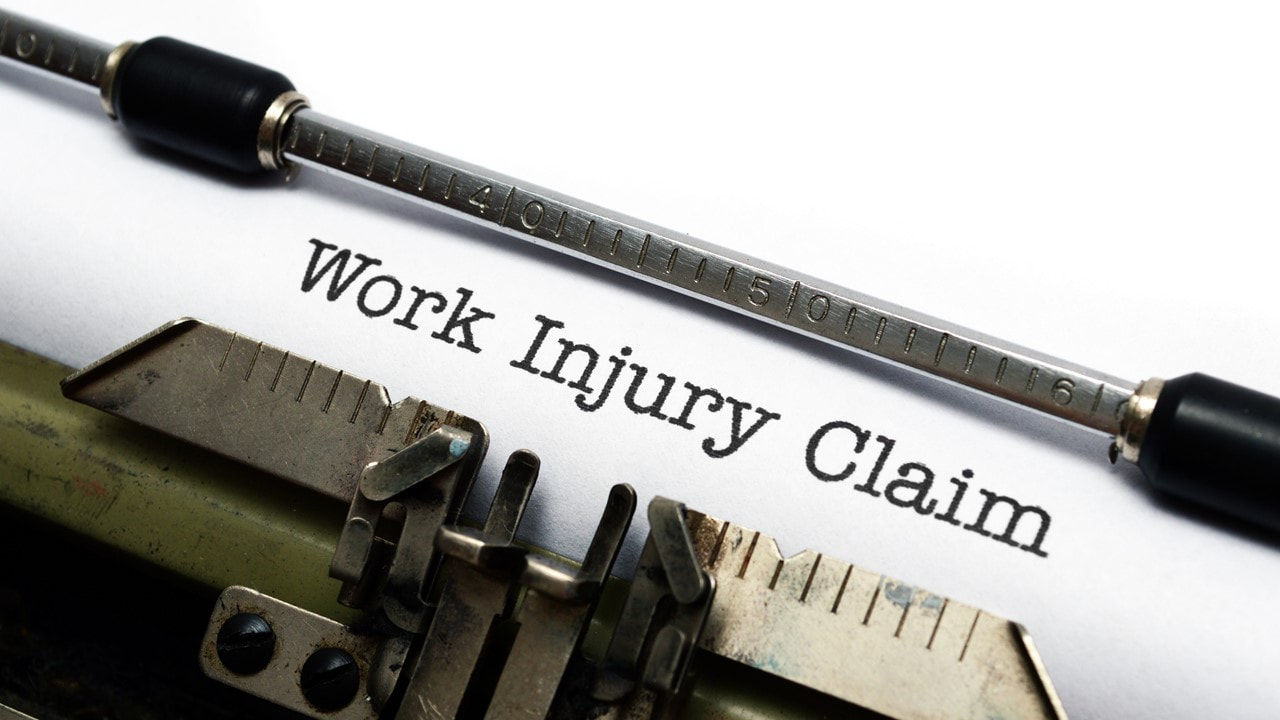
 RSS Feed
RSS Feed